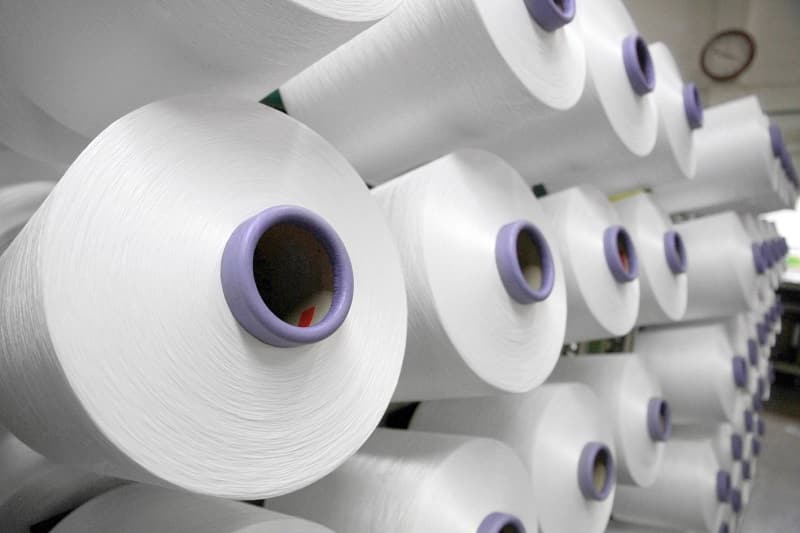PET Resin – Bioplastics as toxic as regular plastics; both need regulation, say researchers 03-06-2024
PET Resin
- PET Bottles – Group Partners with HYDS to Boost Green Hydrogen Use in Europe 27-05-2024
- New enzyme technology for environmentally friendly plastic recycling
PET Resin
Bioplastics as toxic as regular plastics; both need regulation, say researchers
- Emerging research shows that plant-based plastics — just like petroleum-based plastics — contain many thousands of synthetic chemicals, with large numbers of them extremely toxic. However, the bioplastics industry strongly denies that bio-based plastics contain hazardous substances.
- Scientists are finding that while plant sources for bioplastics, such as corn or cane sugar, may not themselves be toxic or have adverse health impacts, the chemical processes to manufacture bioplastics and the many performance additives needed to give them their attributes (hardness, flexibility, color, etc.) can be quite toxic. PET Resin
- Those doing the research no longer see bioplastics as a solution to the global plastic pollution crisis and would like to see them regulated. However, a very large number of petroleum-based plastics and the chemicals they contain also lack tough government oversight.
- This week, representatives from the world’s nations gather for a fourth session to hammer out an international treaty to curb the global plastic pollution crisis. The High Ambition Coalition (including 65 countries) hopes to achieve a binding global ban on the worst toxins in plastics. But the U.S., China and other nations are resisting. PET Resin
Almost 25 years after their hopeful debut, bioplastics contribute only about 1% of the global plastics market share, mainly for food packaging. But that may soon change.
The Biden administration announced an initiative in 2023 to “spur a circular economy” with the goal of replacing 90% of petrochemical-sourced plastics with bio-based materials over the next 20 years. With looming European mandates also aimed at addressing the plastic pollution crisis, analysts expect the bioplastics market to grow to 5 million metric tons by 2025.
At first glance this sounds like a good thing, but is it?
Motivated by the aggressive marketing of bioplastics as a solution to the plastic crisis, scientists are now peering inside these material innovations, and those doing the research don’t like what they see. PET Resin
“Most people don’t know about toxins in plastics, period. And even people that do work with plastics don’t know about toxins in bioplastics,” says Bethanie Almroth, a professor of ecotoxicology and environmental science at the University of Gothenburg, Sweden, who has studied bioplastics.
These plant-based materials can be just as toxic as petroleum-based ones, she says. That’s not necessarily due to the plant world sourcing of base materials, but because of the chemical processes needed to make bioplastics and the additives required to achieve the many desirable qualities demanded of them (durability, flexibility, color, etc.).
In a 2020 study, researchers purchased bio-based plastic products such as food wrappers, food storage bags, reusable coffee cups, tea bags, disposable cutlery and coffee capsules. They also obtained raw materials (bio-based plastic pellets) at a plastics trade fair.
In the multipart study, the scientists first analyzed the pellet samples and found a complex mixture of thousands of chemicals, most of them unidentifiable. Next, the researchers exposed bacteria to extracts of the bioplastics; they found that the majority had multiple toxic effects. PET Resin
And it didn’t seem to matter what type of bioplastic material was sampled when it came to toxicity: Bio-PET, polybutylene adipate terephthalate (PBAT), polybutylene succinate (PBS), polylactic acid (PLA) and polyhydroxyalkanoates (PHA) all contained similar numbers of chemicals with similar toxic effects. The biggest difference was that the consumer products tended to be more toxic than the pellets.
For a 2023 study published in Environmental Pollution, Almroth and her team placed plastic and paper cups lined with the bioplastic PLA in sediment and freshwater for up to four weeks. Then they added the contaminated water to a tank with mosquito larvae. The larvae exposed to the leachate from PLA-lined cups saw just as much mortality, inhibited growth and deformities as those exposed to petrochemical-based polystyrene and polypropylene. PET Resin
These results don’t bode well for people drinking and eating out of bioplastic foodware, though toxicity effects on humans were not evaluated in the study, and more research needs to be done to back up the findings of these two early studies.



